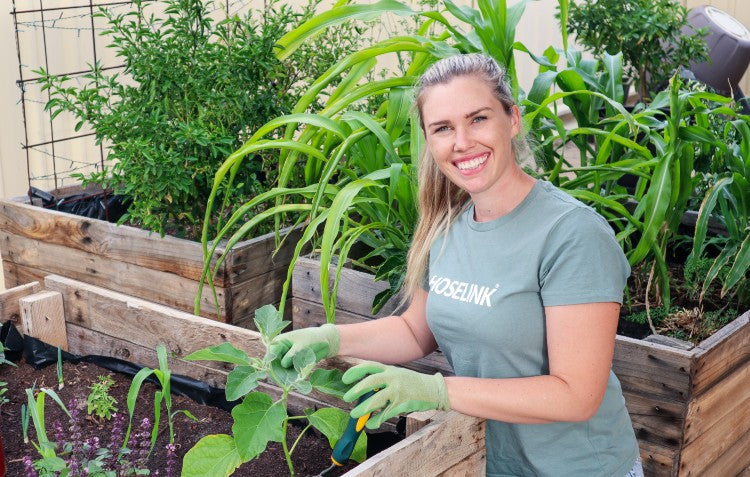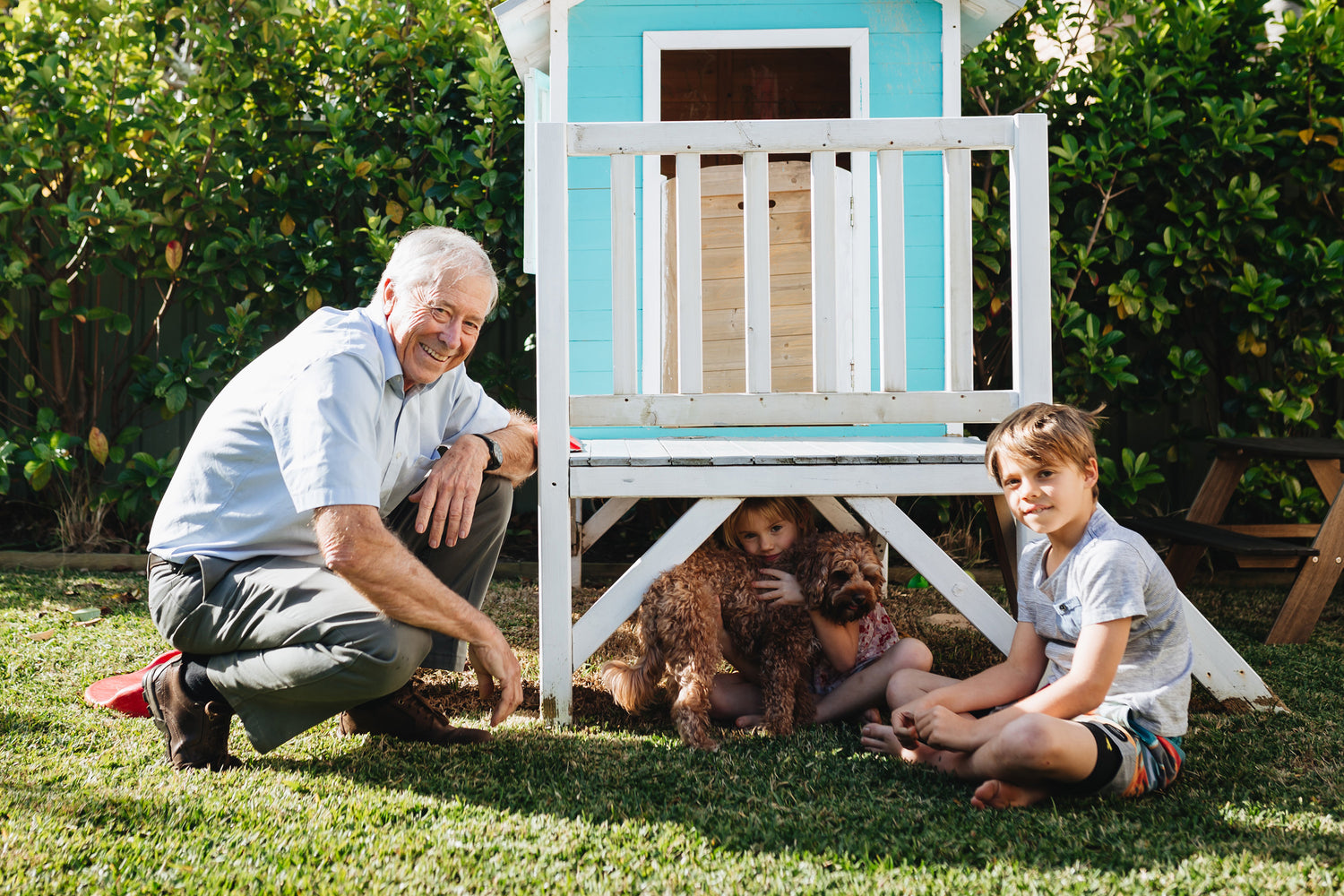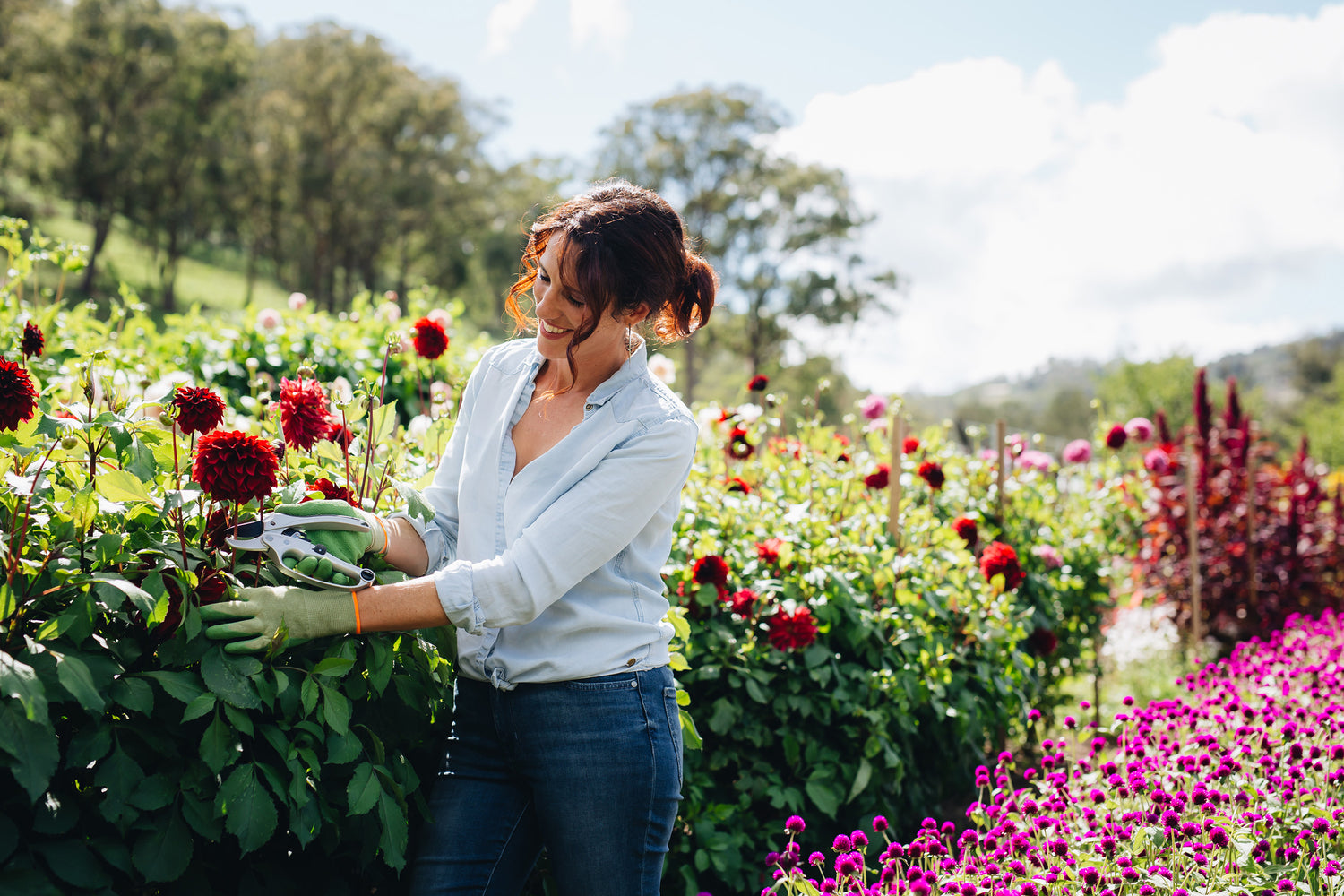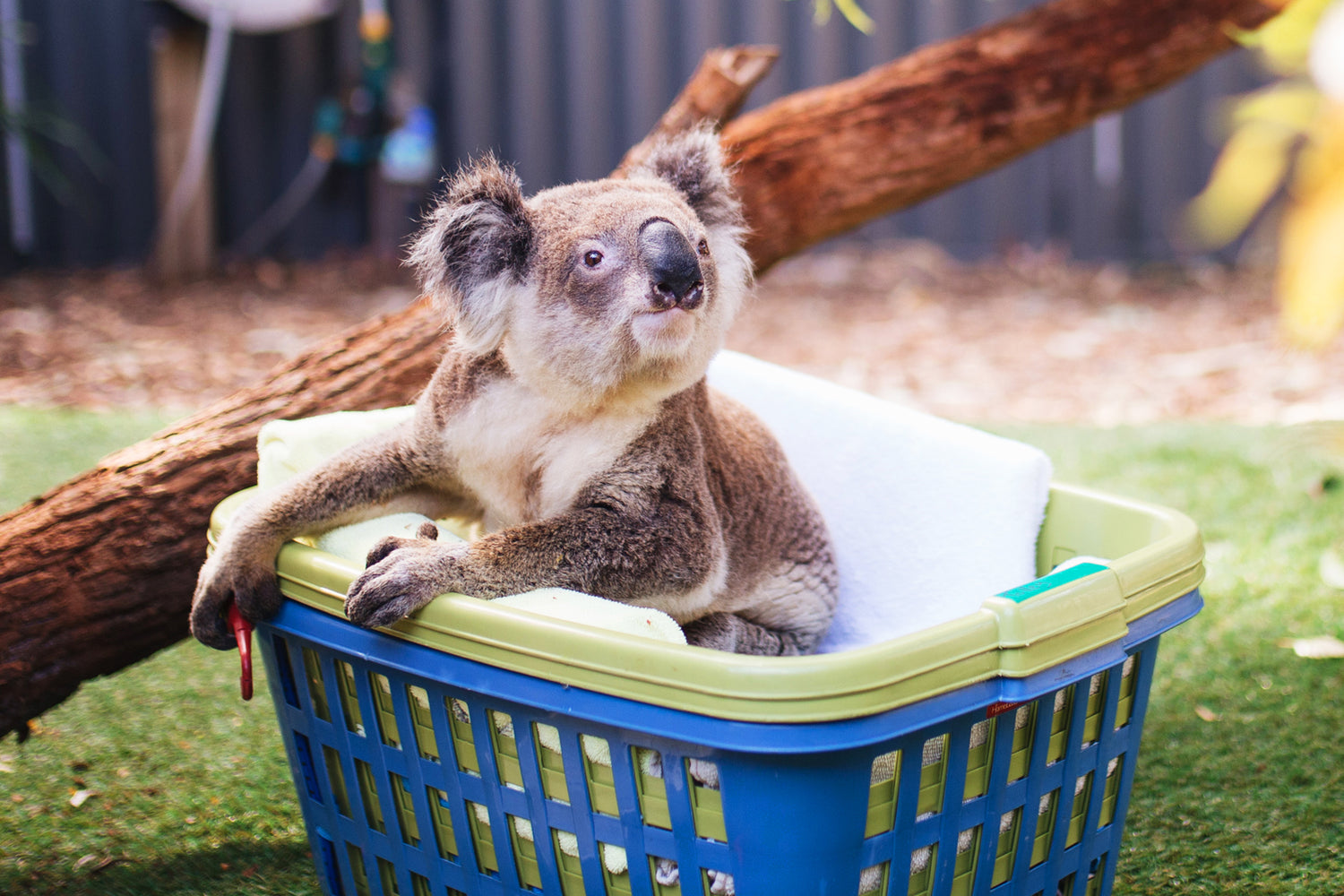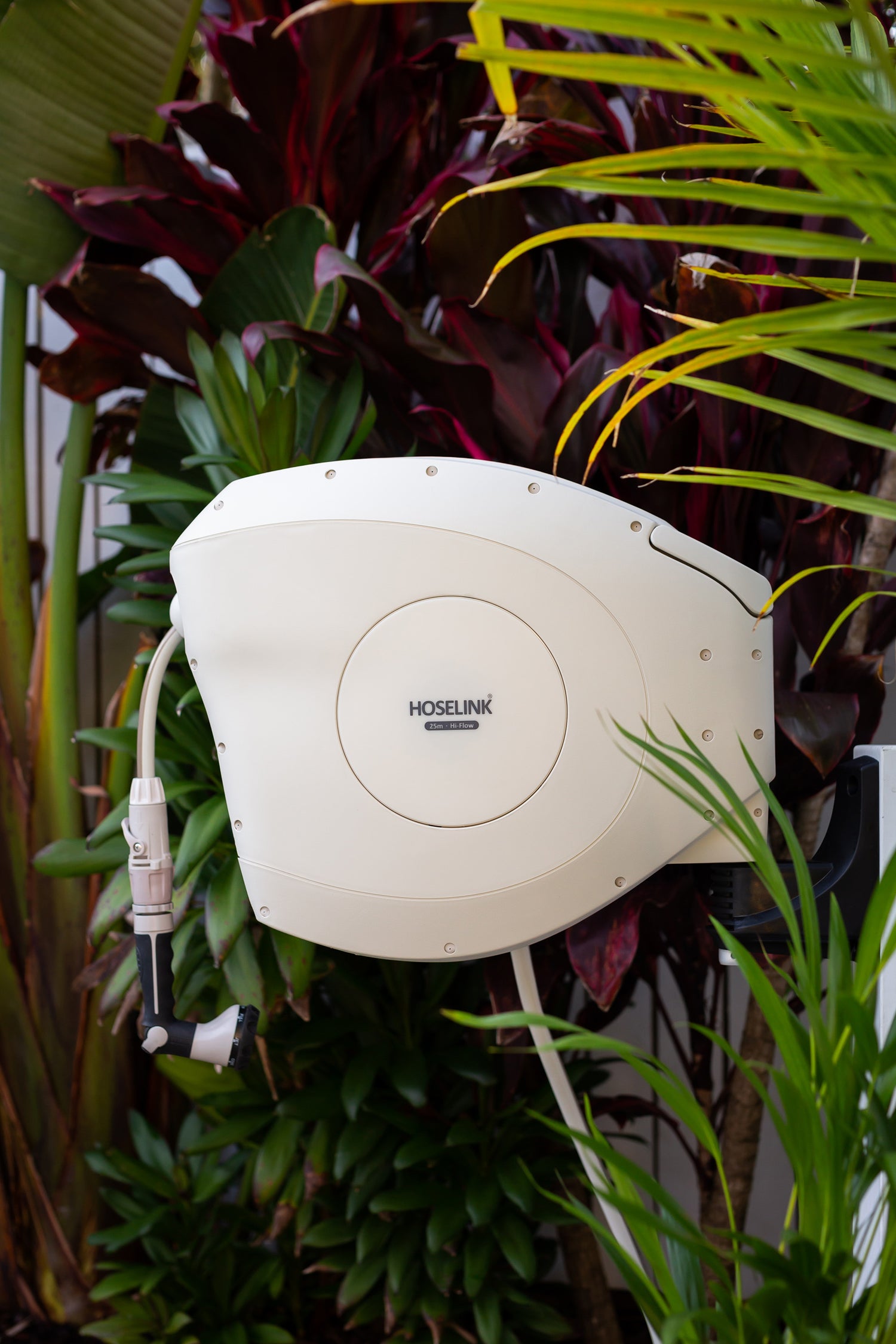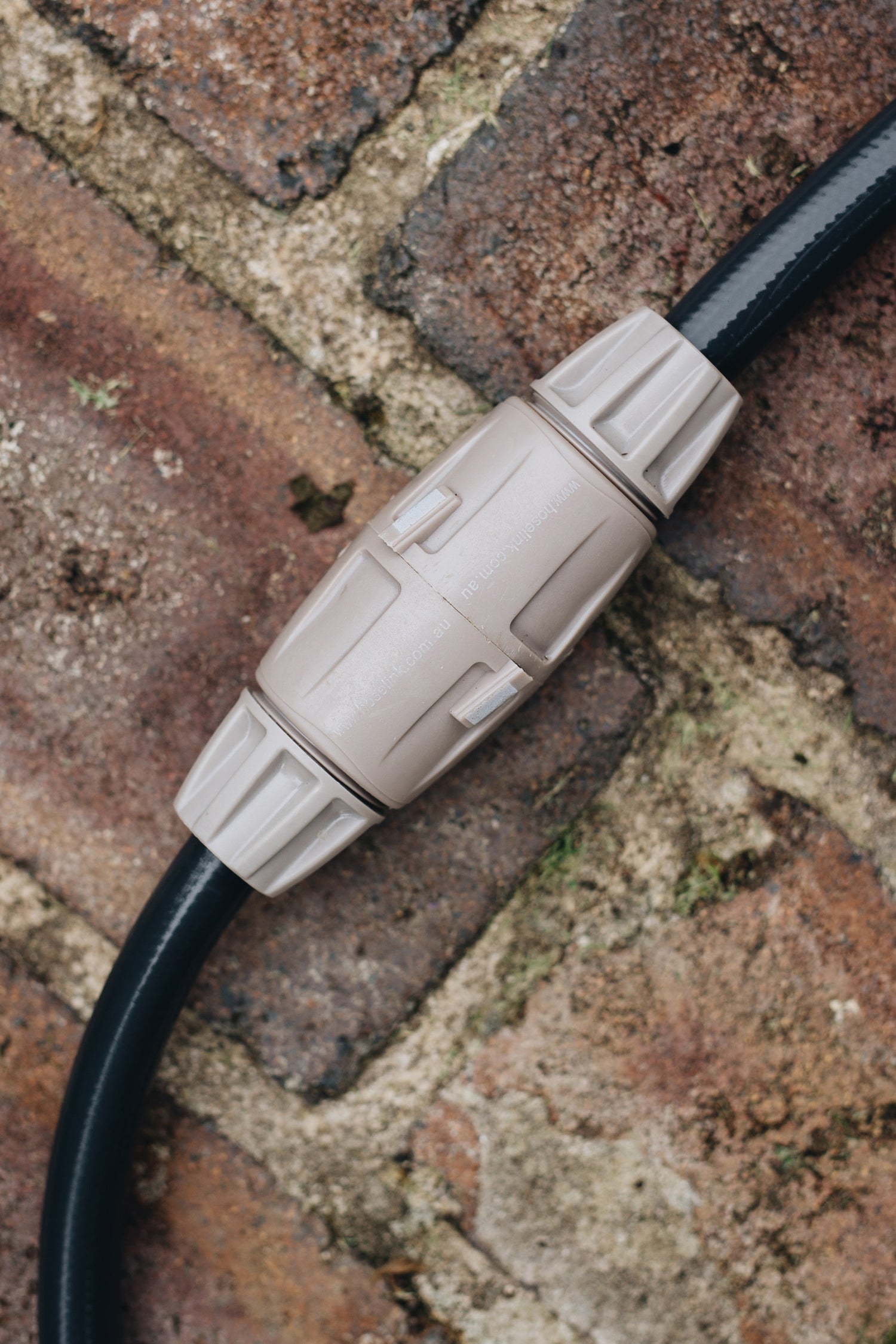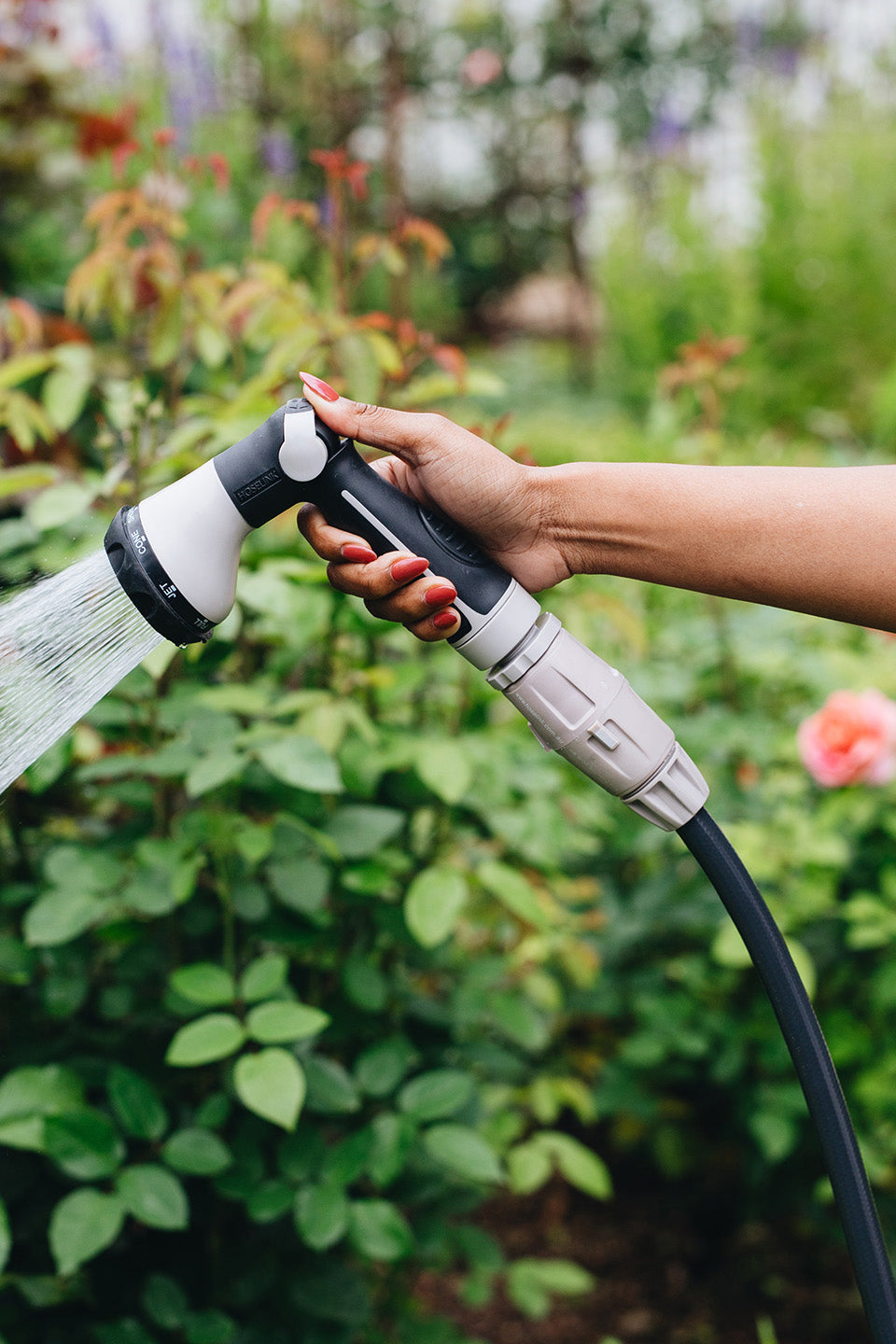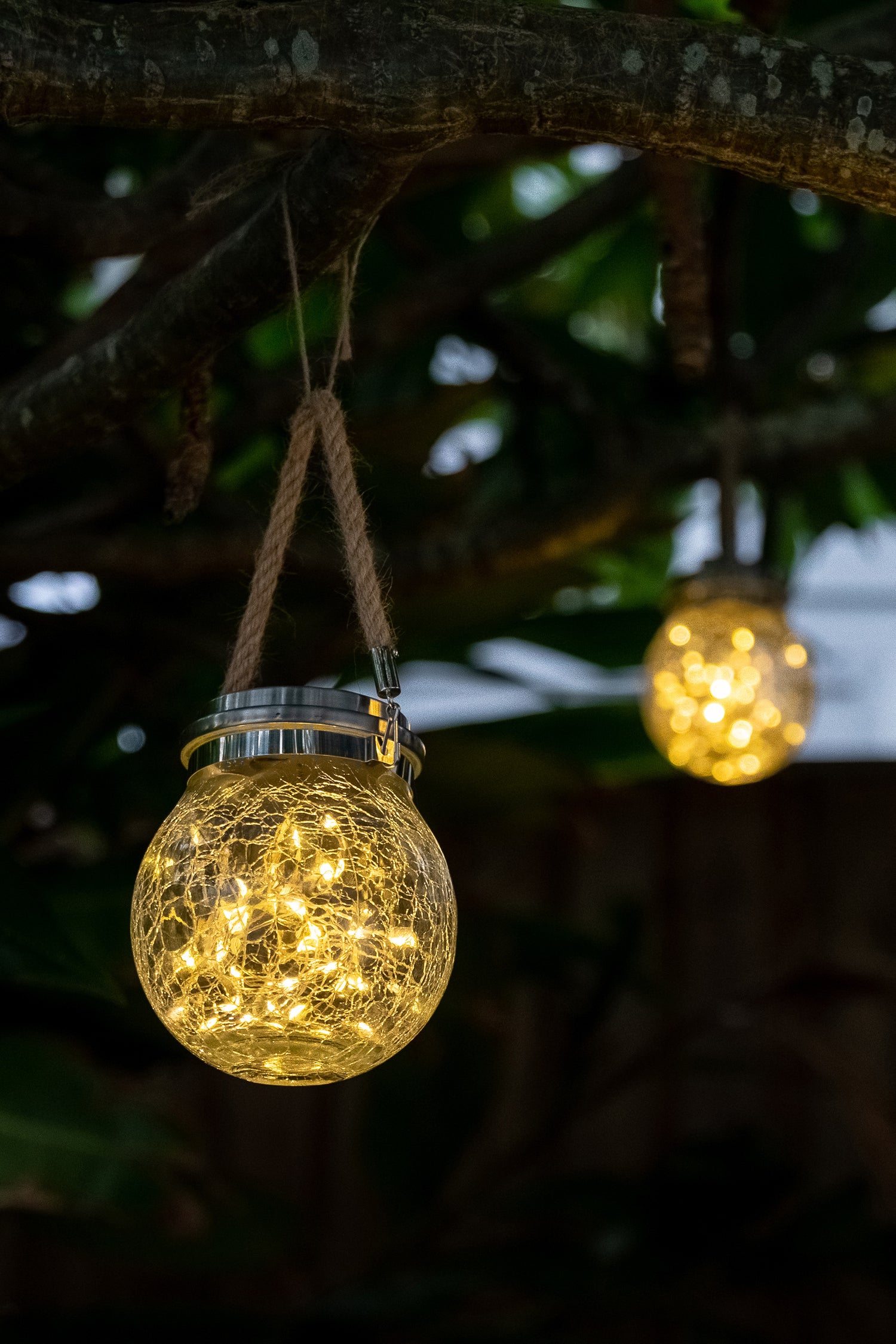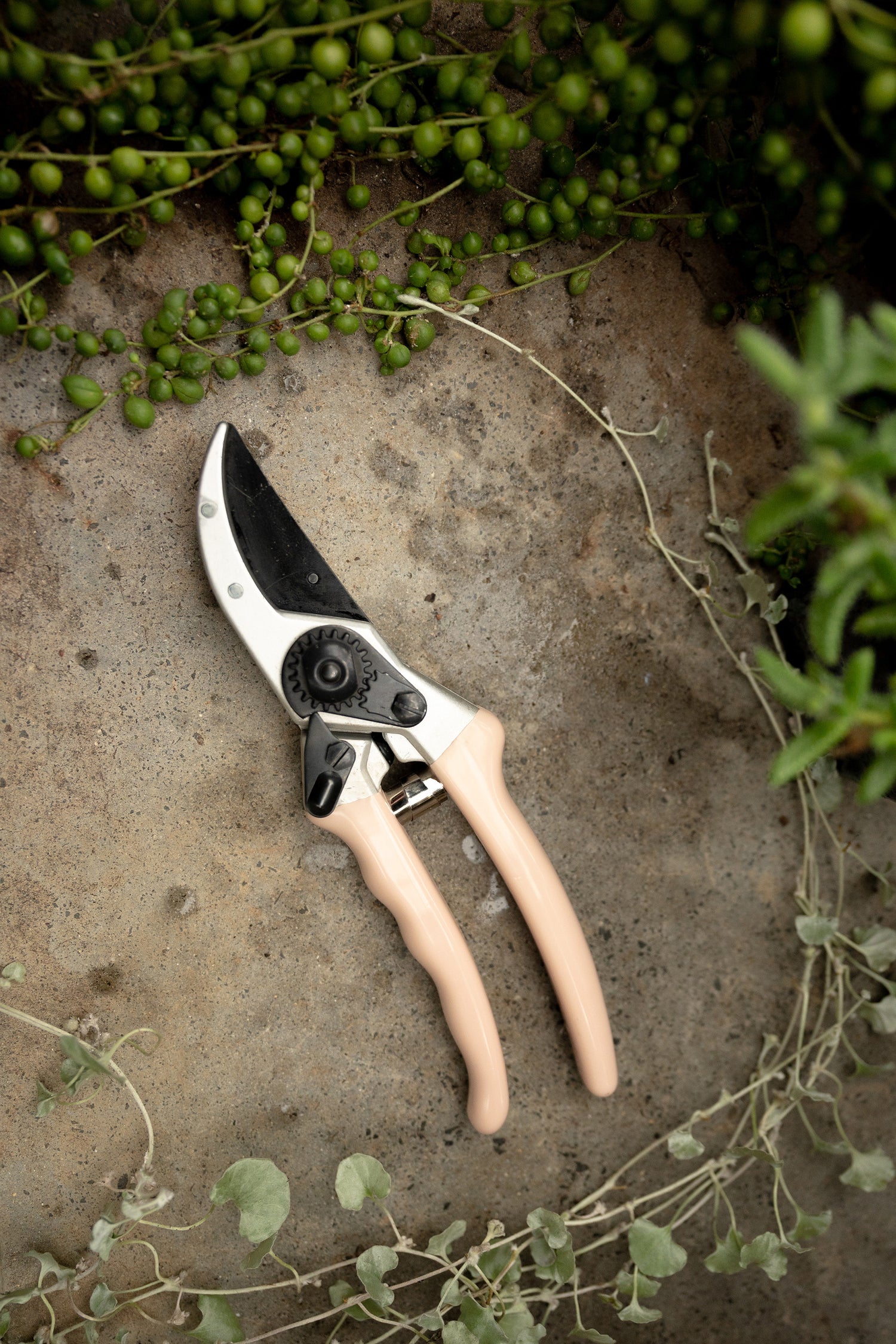Integrating edible plants into your backyard design will not only help you create a beautiful sanctuary to enjoy but will also provide fresh produce that is easy and convenient to pick. Hanging baskets, pots, windowsill planters and vertical gardens will all provide adequate space to grow an edible kitchen garden.
Pots and grow bags can be the perfect size to start growing food on your balcony or a patio. They can be easily moved around to maximise the sun and will still allow you to use your space for entertaining.
Below are some of my favourite edibles that produce an abundance of food on a single plant.
Dwarf citrus
Dwarf or semi-dwarf citrus can be grown in a pot or garden, and you can grow your own delicious, spray-free fruit at home without compromising on space. Citrus is a great fruit tree to grow in your home garden or patio because they are hardy and easy to grow. Citrus like full sun and it is best to feed them with a small amount of liquid seaweed solution every 3-4 months. Citrus fruit is super versatile with so many uses including eating fresh, juicing, dehydrating, preserving, turning into marmalade, baking plus you can use the skins to make your own DIY cleaning products. A big tick for dwarf citrus in urban gardens!
Rainbow chard
Rainbow chard is a standout plant in the garden with its vibrant coloured stems and lush green leaves. Chard is super easy to grow and will produce an abundance of edible leaves quickly. You can harvest the outer leaves as you need them and the plant will continue to produce more. This powerhouse vegetable is packed full of vitamins and minerals and can be used in many dishes. Slice it up and use it in stir-fries, curry, soup or anything you make in the slow cooker. The young baby leaves can be used raw in salads, in fried rice or in omelettes. Add sliced chard to a pan with butter, salt and garlic or try frying with soy sauce, garlic, ginger and chilli.
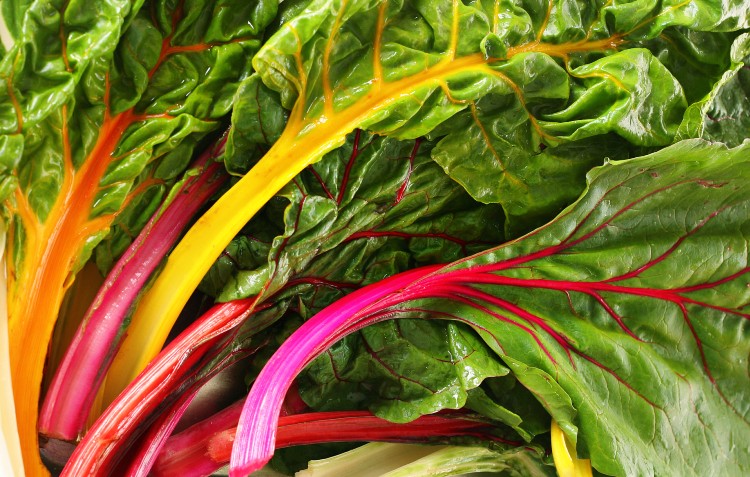
Eggplants
Mini eggplants can be grown all year round if the winters are mild enough. If you grow miniature eggplants in a pot, you can move them to a warm sheltered spot over the cooler months. One plant is sufficient with the number of eggplants they produce. The miniature eggplants hold their texture and don’t go as soggy as the large varieties. Try varieties such as mini Lebanese, Fairytale, Casper or Rosa Bianca.Enjoy mini eggplants thinly sliced and pan-fried served on top of eggs on toast or add to salads. They are also great chopped up in curry, pasta and stir-fries, or why not impress your guests with homemade baba ganoush dip straight from your patio garden?
Kale
Kale is great for small space urban gardens as you don't need many plants. One or two is usually enough for an abundance of leafy greens. There are many different varieties, and they are not all made the same. Each kale variety has a distinct flavour and texture. Harvest the bottom leaves, and it will continue to grow into a mini tree, providing you with nutritious greens all year round. This also allows more space to grow other plants underneath it. Kale is delicious eaten raw in salads, sandwiches or smoothies or cooked in stir-fries, curries and omelettes.Chilli
Chillies make a great addition to an edible urban garden. They boast vibrant colours, and each plant will produce an abundance of fresh chillies. With lots of varieties available from mild to hot, there is a plant type to suit every palette. Chillies thrive in warm sunny spots, and you can move them indoors to a sunny window or somewhere sheltered over winter to extend your crop. Harvest your chillies and keep them in the freezer, hang them up to dry or dehydrate and finely chop to make your own chilli flakes!
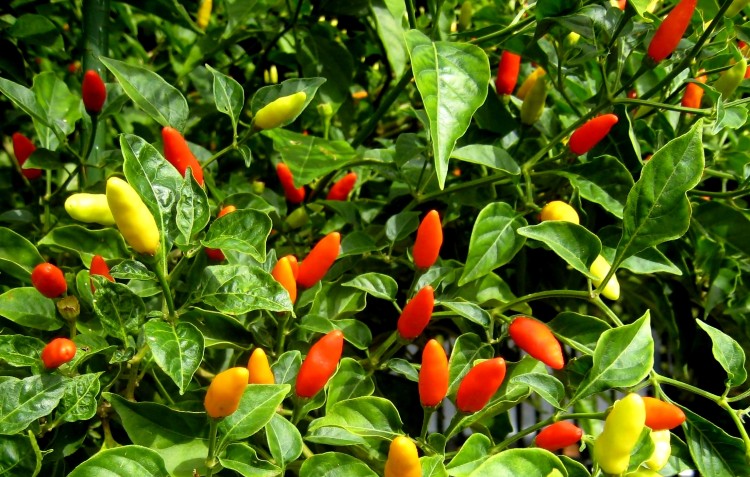
Basil
Basil is a delicious and fragrant summer-loving herb. There are many varieties available including a rich deep purple and fragrant Thai basil. Basil can also be a great addition to any cocktail garden. To encourage the basil to grow into a large bush, simply pick out the tops to stop it flowering and promote new leaf growth.Cherry tomatoes
Tomatoes and basil are not only a great flavour combo but also make excellent companion plants that aid one another's growth. Cherry tomatoes are the perfect snack-sized tomatoes that grow abundantly on a single compact plant. Growing cherry tomatoes in your urban garden will provide you with lots of fresh, delicious tomatoes to add to your summer salads. Grow your tomatoes somewhere with plenty of sunlight and good airflow. Water them from the base and try not to get the leaves wet as moisture on the leaves can promote disease.
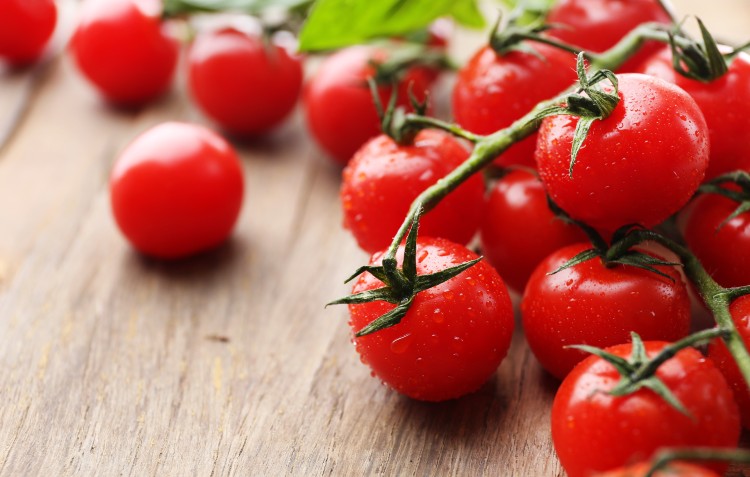
Cucumbers
Cucumbers are another summer favourite, and you can grow them vertically to save on space. Cucumber varieties such as Lebanese, Spacemaster or mini white are perfect for urban gardens. They produce baskets full of delicious, hydrating food on a single compact plant. If you can't keep up with eating them fresh, try making pickles.
Kumquats
Kumquat is a type of citrus tree that bears small orange fruits with edible skins. They are prolific fruiters and, unlike many other fruit trees, they will start producing in the first year or two. Kumquats make the perfect garden snacks for your patio and can be picked fresh to add to salads or cocktails. Kumquat trees can easily be grown in pots as they don’t need to develop very big to produce a lot of food.
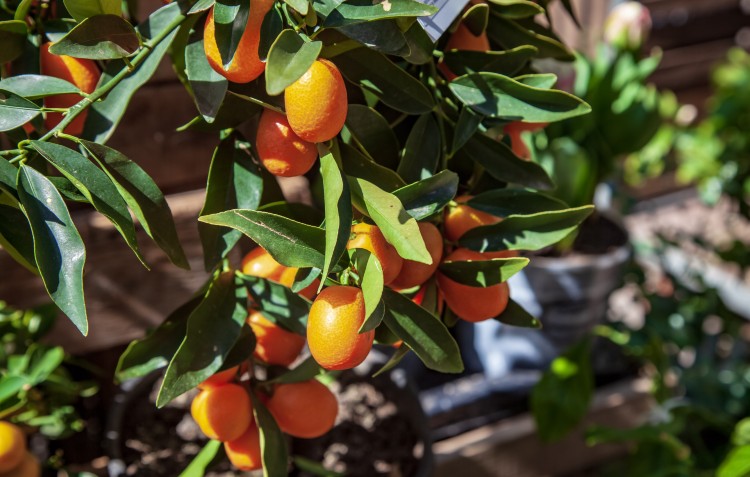
Spring onions
Spring onions don’t take up much space and can be grown close together. Try planting a full pot or grow bag of spring onions and you will have fresh produce fast. You can double your production by cutting them off at the base rather than pulling them up. They will reshoot from the same plant, giving you more food with little space needed. You can even plant the ends of spring onions from shop-bought ones! Growing food from scraps is a fun and rewarding activity.
Small space gardening is all about getting creative and stacking layers to maximise growing space. Think outside the box and get creative. The great thing about growing food in containers is that you can easily take them with you when you move.
You don’t need a huge garden to start learning to grow your own food. Start today, even if it’s with a pot of herbs on the windowsill or a dwarf lemon tree in a pot. You can grow and develop your knowledge and experience with every plant. Growing food at home is also a great way to teach children where their food comes from. Involving them in the whole process from planting to harvest may encourage them to eat more nutritious, wholesome foods.

